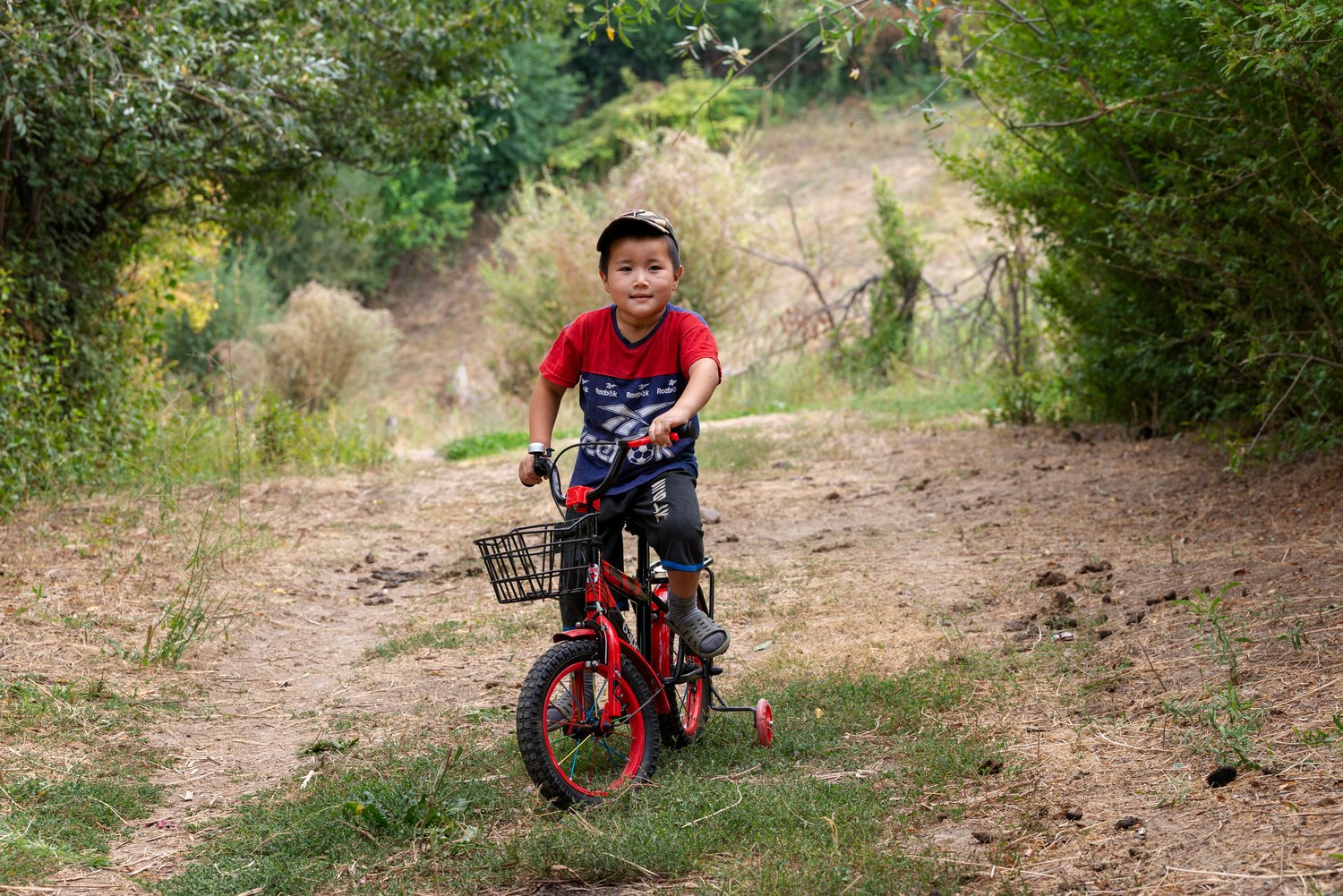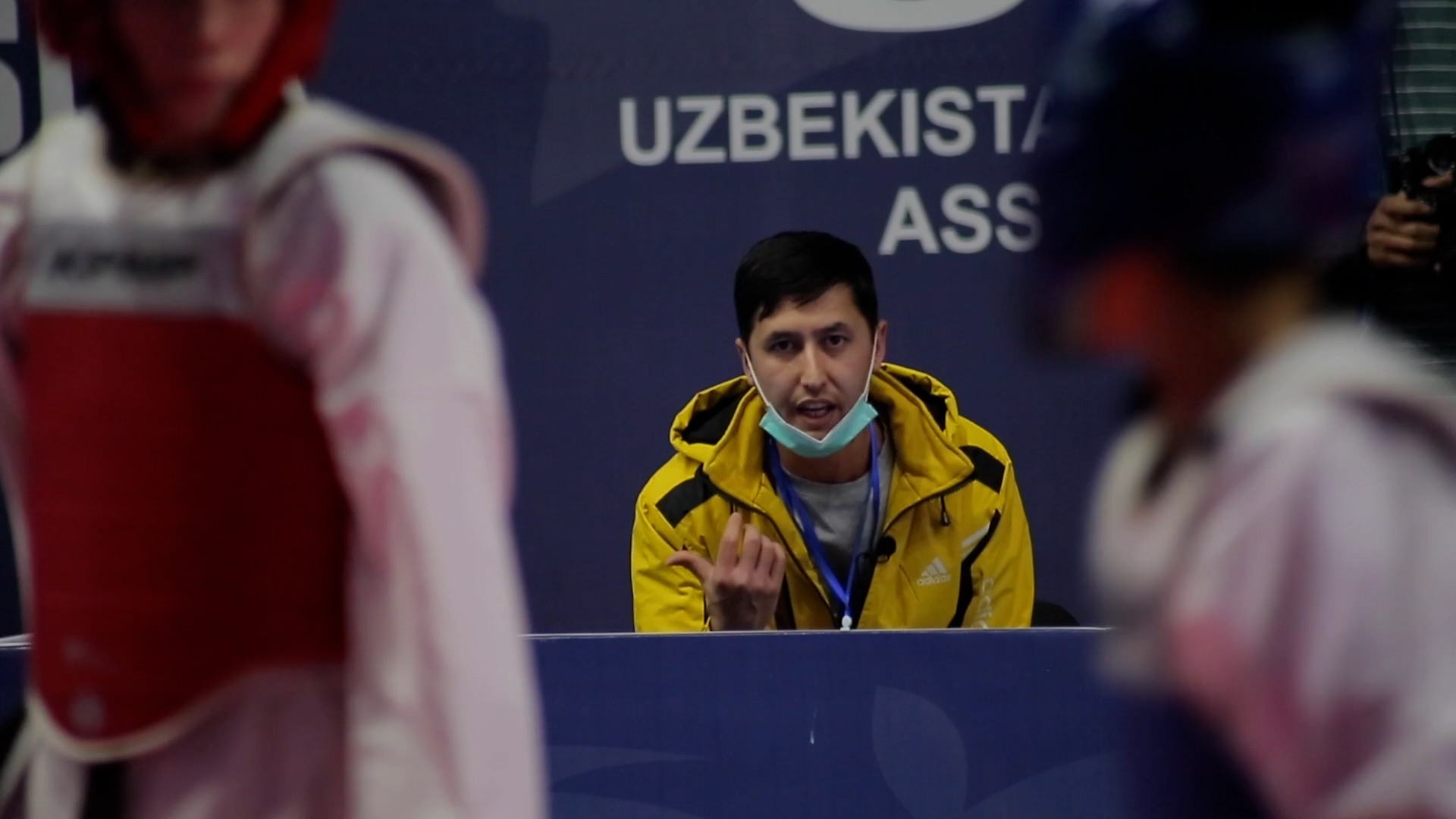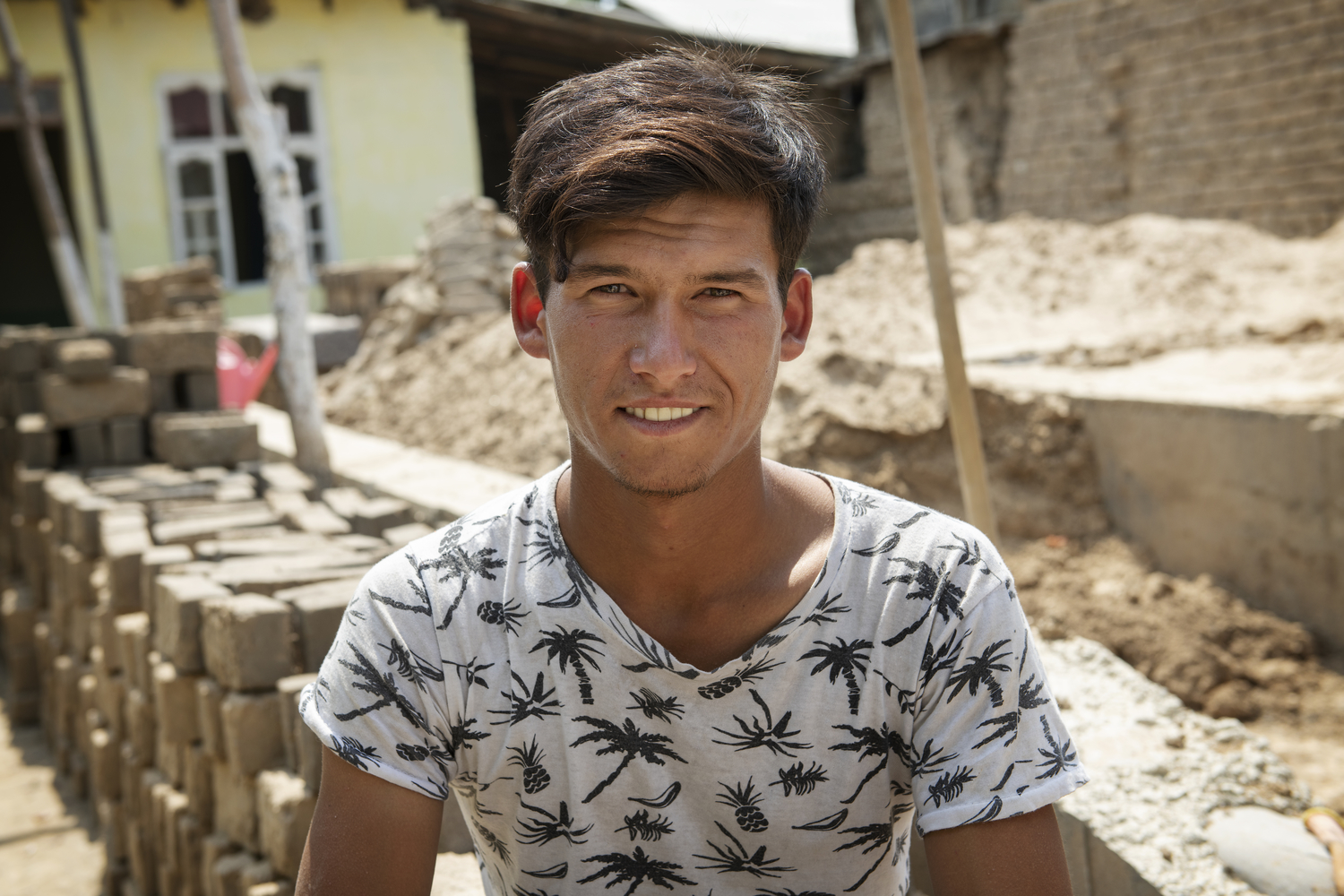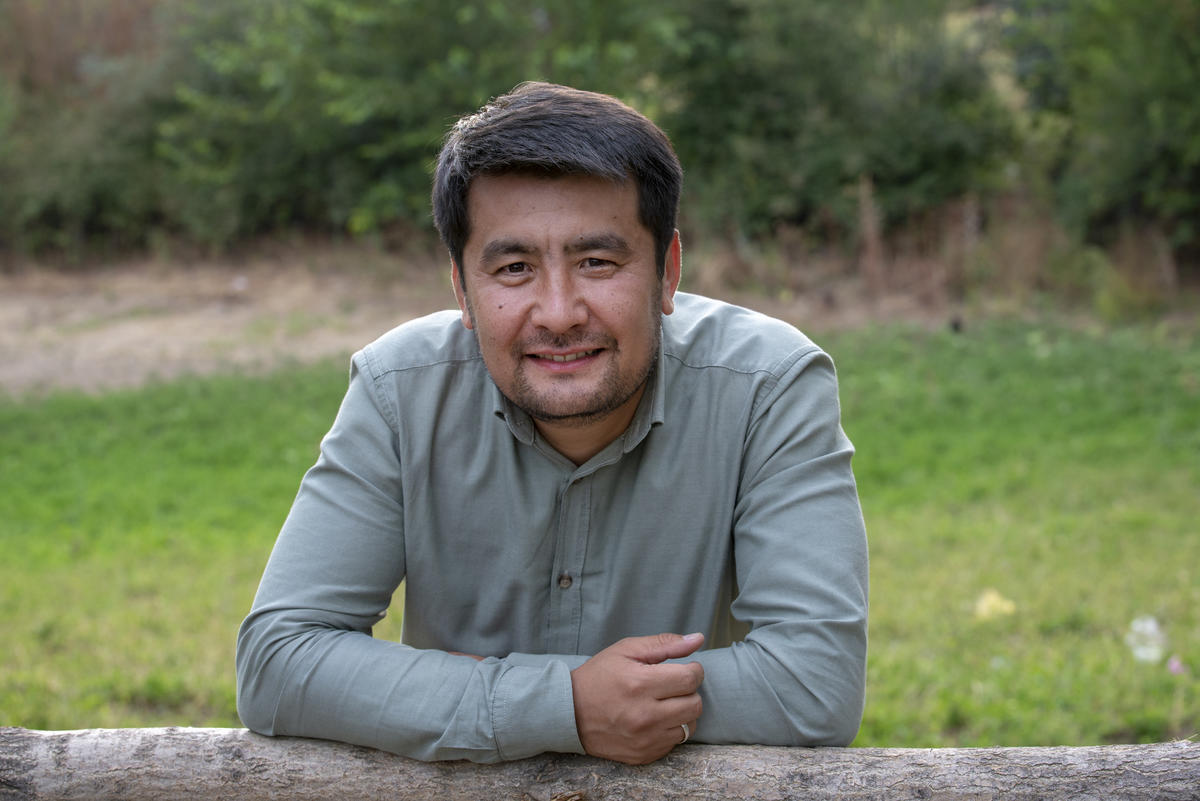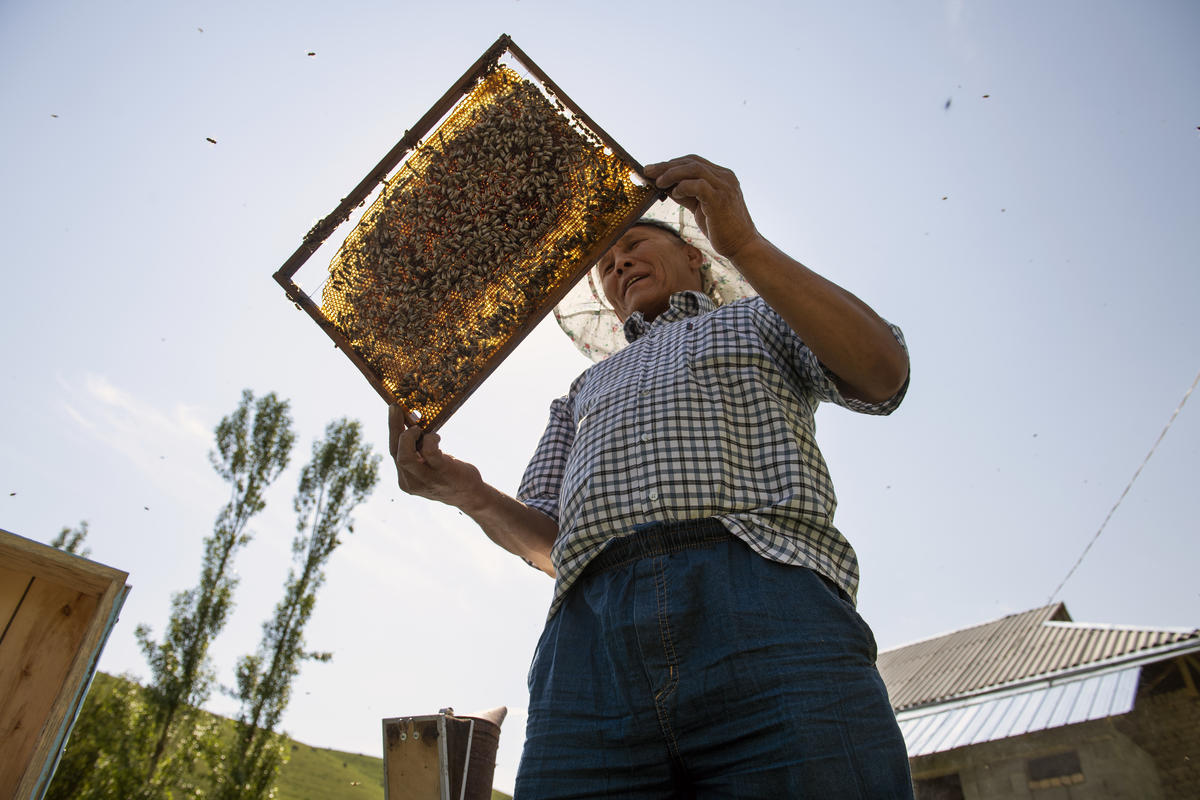Uzbeks in Kyrgyzstan still in limbo a year after fleeing Andijan violence
Uzbeks in Kyrgyzstan still in limbo a year after fleeing Andijan violence
OSH, Kyrgyzstan, May 12 (UNHCR) - On the first anniversary of the violent events in Andijan, eastern Uzbekistan, Haitvoy* has every reason to sigh. The 29-year-old Uzbek has been in exile in neighbouring Kyrgyzstan for a year now, struggling to survive amid news that his brother back home was recently sentenced to 13 years in prison.
Haitvoy was among hundreds of people who fled Uzbekistan in mid-May last year after the government cracked down on demonstrations in Andijan. Most left their families behind, including Dilshot*, whose brother is still in detention for taking part in the protests.
While thankful that they are safe in Osh in south-western Kyrgyzstan, the men admit, "We have a very difficult life here. We have no house. It's hard to find a job. And we miss our children."
Fellow Uzbek Rasuljon* explains, "In the beginning, we did some construction work but the boss refused to pay us. Then we tried to set up a bakery but the prices were driven down by local competition. Now we load and unload goods in the market, but it's hard to find work because we don't feel secure, we're too close to the border."
Rasuljon is alone in Osh. His family was part of the 439 Uzbeks who were evacuated last summer from a border camp in Jalalabad to Romania, and who have almost all been resettled to other countries worldwide. He himself was not resettled as he could not get into the camp due to security measures. Now he is among a group of Uzbeks awaiting a decision on their refugee status from the Kyrgyz government. Another four Uzbeks recognized by UNHCR as refugees are still in detention in Osh, pending a decision by the Kyrgyz authorities on their fate.
Those who do file asylum claims are interviewed by the Kyrgyz government's Committee on Migration and Employment together with the UN refugee agency.
"After each session, UNHCR staff assess the interview and point out the strong and weak parts, which helps us to improve our work," says Nuriyla Djoldosheva, the committee's director in Osh.
The refugee agency is also funding the position of an official in the committee to conduct refugee status determination.
A proposal to open a refugee reception centre in Osh is currently pending approval by the government. "Refugees often can't find a place to live," Djoldosheva explains. "With a reception centre, at least we can give them a roof over their heads."
A strong advocate for refugee protection, she notes, "We've signed the Refugee Convention, and now we have to fulfil the commitments. Another issue to be resolved is the employment of refugees, their integration. We have to accept that these people fled conflict, they didn't come willingly. They're here with us and we have to help them. I know most of them are not willing to stay here all their lives. If the situation at home improves, they will go back."
NGO Adilettulugu's Maitov says one of the greatest achievements so far is that "Kyrgyz authorities now know who's an asylum seeker and who's a refugee. They learn on the job every day, and we're planning formal training on protection issues together with UNHCR."
Djoldosheva agrees: "Over the past year, I experienced how UNHCR works, its mission and objectives. I understood how everyone deserves the right to live in dignity, a right you're born with. The next step is for us to explain to the local population who refugees are and how to live with them."
To boost the authorities' community outreach efforts, UNHCR recently started a project with French NGO ACTED to raise awareness of refugee issues in 12 border villages in Kyrgyzstan. This will be done through social mobilisers in schools and by organizing public discussions with experts on refugee law and issues.
"Sometimes it's hard to explain to the state authorities that our intent is not to be resettled," said Rasuljon. "In Andijan, I had my own bakery and barber shop. I had a successful life and I was happy. Of course I wouldn't choose to live like this. For sure, if the political situation changes in the future, we will return. But for now it's impossible."
Dilshot adds, "Everyone has a right to live in dignity but earning this dignity is hard. We don't know what the future will bring, and it's not up to UNHCR to decide. When you don't know what to expect, it's hard to have anything to live for. At least we want to live like normal human beings."
Undeterred by the challenges they face in exile, the two men are currently working on a proposal to seek funding for a business.
UNHCR is supporting the Kyrgyz authorities - upon their request - in making contingency plans should the situation in the region deteriorate. The agency's regional warehouses are stocked with relief supplies for some 4,000 people, and its teams have been working with the Kyrgyz government on an emergency response plan in case of a refugee influx.
In Geneva on Friday, a UNHCR spokeswoman said the refugee agency remains concerned about the fate of the four Uzbeks who remain in a Kyrgyz prison, and has repeatedly called on the government not to send the four back by force. Spokeswoman Jennifer Pagonis told a UN briefing in Geneva that UNHCR has offered assistance to the government and an alternative solution for the four in other countries. In Romania, meanwhile, a total of 80 Uzbek refugees remain from the group of 439 which was evacuated from Kyrgyzstan last year. They will be resettled over the coming months, Pagonis said.
* Names have been changed to protect the interviewees' identity.
By Vivian Tan in Osh, south-western Kyrgyzstan


